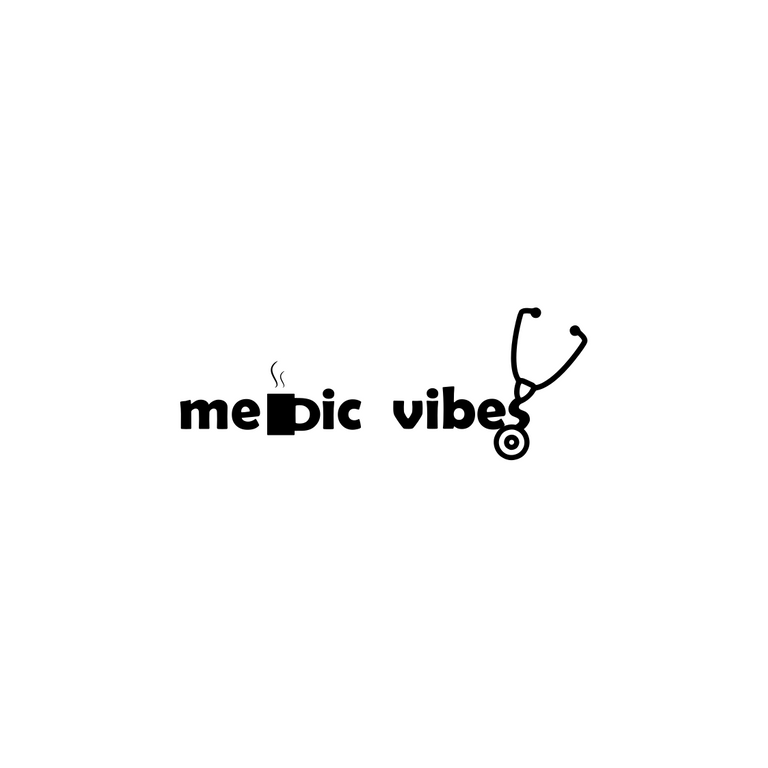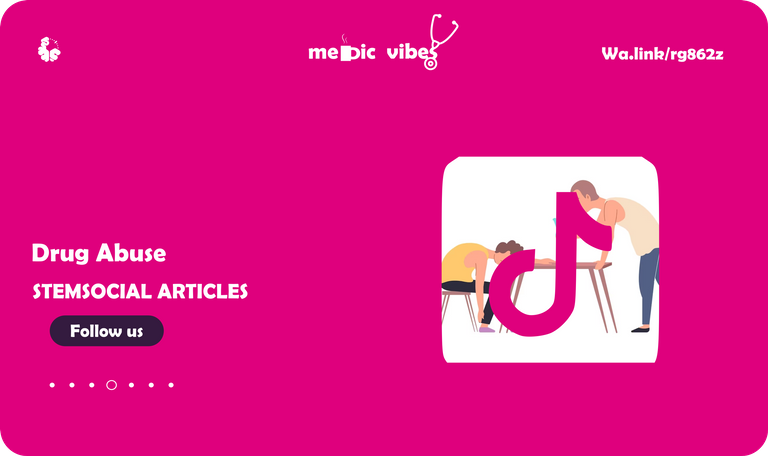
[https://qr.ae/prwT9D](What are the social factors that contribute to substance abuse?)
In the last post, we saw how:
- Alcoholism is a complex disorder caused by a combination of biological, psychological, and social factors.
- ADHD medication may increase risk of substance abuse, but research is inconclusive and considers other factors such as family history and co-occurring mental health conditions.
- Medications may not be suitable for alcohol-related disorders, therapy and reassurance are recommended.
Welcome to Medic Vibes, where we discuss mental health disorders and make sense of them. Dr Ebingo Kigigha is a medical doctor (aspiring psychiatrist) and creative person (illustration and music). This has been our routine for four consecutive months. This month will be dedicated to substance abuse. In the first month, we discussed Depression, and in the subsequent month, anxiety. We just finished with Conduct disorders.
In this post, we are looking at A Nigerian Study on Substance Abuse. To learn more just keep scrolling down. You can also skip to the key point of the post if you which or go to the conclusion to get the summary.

Behavioral theories of the rewarding effects of alcohol, and the awareness that one cannot be held responsible for their behavior and alcohol's intrinsic positive loop, are pieces to the puzzle that come together to cause the patient to indulge in drinking, even though it causes them problems. These are the factors that need to be addressed in these patients and are the keys to their rehabilitation.
The theories around the sociocultural effects on alcoholism are related to the findings of varying rates of consumption depending on the specific group. It has been found that Jews, who are known to have children who start drinking moderate amounts in family gatherings, have the lowest rates of alcoholism.
In other groups, such as the Irish and some Indian tribes, who are believed to have higher rates of alcohol-related disorders, there are rituals associated with drinking to the point of being drunk. However, the theory behind this is not based on statistics and exceptions exist.
In some evaluations, people have thought that because of the culture seen among the Irish, it was expected that Italians would have similar rates. However, there are environmental risks that account for close to 40% of the risk associated with this condition.
Even though it is not easy to study, it is well-known that culture plays a role in the development of alcohol-related disorders.
On a final note, the social and psychological factors that come into play in the development of alcohol-related disorders are seen to have an effect on the onset and development of these problems. The issue has been with gathering data to access this factor.
There are some patterns that have been noted among those who have alcohol-related disorders, which start to play out from childhood. Children who have one or both parents with a similar condition are at a significant risk.
There were other findings that are worth noting. For example, those who have this disorder are more commonly affected by neurocognitive deficits during testing and have evoked potential testing waves with low P300. They also have different abnormalities on their electroencephalogram (EEG).
There are some studies that have looked at individuals who had siblings who were high-risk in their 20s, and they found that the use of alcohol did not have a significant effect on them as much as the general population. If these findings are true, it is possible that there are biological differences that exist in those with alcohol-related disorders that are not seen in others.
If a child has Attention-Deficit/Hyperactivity Disorder (ADHD), conduct disorder, or both, they are also at significant risk of having this disorder when they become adults. The mature variant of conduct disorder (antisocial personality disorder) also puts the person at risk of developing an alcohol-related disorder.
One of the new drugs being tried as a useful medication is acamprosate. It has been tried in 5,000 Europeans with alcohol-dependent patients and is yet to be used in the United States. The therapeutic window is within 2g per day. The drug has been associated with a 10 to 20% positive effect in those trying to see results in psychological and behavioral treatment.
The way this drug works is not known, but theories center around Gamma Amino Buteric Acid receptors. When it takes effect, it has a significant effect on the tolerance or physical dependence on alcohol.
Another drug that has shown some use in the management/treatment of alcoholism is buspirone, originally an anxiety medication but not a benzodiazepine. The results from studies are not clear-cut, however.
There is no proof that antidepressants such as Selective Serotonin Reuptake Inhibitors, lithium, or antipsychotics are useful in managing alcohol-related disorders.

Substance abuse Social factors(Reaction)

Image by Freepik
There is a strong association between social behavior and substance abuse. Some of the most evident factors include the relationship between peer groups, stress, poverty, and access to healthcare.
The friends a person keeps play an important role in their risk of substance abuse. This influences their choices to start using a substance and eventually progress to abuse. A study published in the Journal of Substance Abuse highlighted that peer group influence is one of the most likely reasons for a person, especially when young, to start abusing drugs.
Another significant factor that adds to this influence is stress. It has been noted to increase the likelihood that a person will abuse drugs. Those who experience chronic stress often turn to alcohol or other substances as a way to cope.
Individuals with a lower socioeconomic status are also more likely to engage in these harmful behaviors, and it has been found to be related to their access to healthcare. There is also a higher level of stress among those who are lower in socioeconomic status. The Journal of Psychoactive Drugs also viewed it as a predictor of future substance abuse among the younger population.
Access to healthcare has also been found to affect people's reactions to substance abuse, with those who have less access being more affected. This is still tied to poverty, but other factors such as the stigma surrounding mental health problems also play a role.
Understanding these social factors is crucial and can help address present and future problems related to substance abuse.

Treatment
One very effective means of treatment for some decades has been Alcohol Anonymous group therapy sessions. The groups are available throughout the day and include individuals who are sober and teaching themselves to live without the need for alcohol. They are also provided with role models through shared stories.
The patient is informed about this group while they are in rehabilitation. The psychiatrist may assist between the group therapy sessions. Some of these groups are divided by sex, while others include both sexes. The groups may also be divided by profession, religious background, or other separate classes.
If the patient is addicted to alcohol and has other psychiatric conditions, it would be wise to educate them specifically. They should be counseled on the fact that AA meetings may not meet their special needs. The patient, if attending, should be made aware that some members of the group may suggest that they stop their psychiatric medications as a solution.
Even though it is not easy to determine the exact effectiveness of AA, it has been known to produce positive results among those who attend.
Questions
- What did you learn about Substance abuse?
Conclusion
- New drugs like acamprosate and buspirone show promise in treatment.
- Social factors, including peer groups, stress, poverty, and healthcare access, significantly influence substance abuse.
- Alcohol Anonymous group therapy sessions help people overcome alcohol addiction with support from peers and role models.

References
- Kaplan-Sadocks-Comprehensive-Textbook-Psychiatry
- Page demarcations made with Inkscape.org
- Healthline
- NIMH
- WHO

Congratulations @medicvibes! You have completed the following achievement on the Hive blockchain And have been rewarded with New badge(s)
Your next target is to reach 100 posts.
You can view your badges on your board and compare yourself to others in the Ranking
If you no longer want to receive notifications, reply to this comment with the word
STOPTo support your work, I also upvoted your post!
Check out our last posts:
Support the HiveBuzz project. Vote for our proposal!
Thanks for your contribution to the STEMsocial community. Feel free to join us on discord to get to know the rest of us!
Please consider delegating to the @stemsocial account (85% of the curation rewards are returned).
You may also include @stemsocial as a beneficiary of the rewards of this post to get a stronger support.
Congratulations your publication has been chosen among the best of the day.
KEEP CREATING GOOD CONTENT.